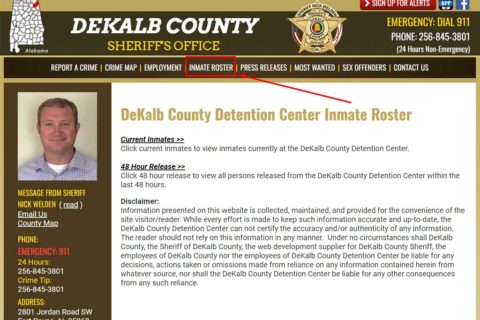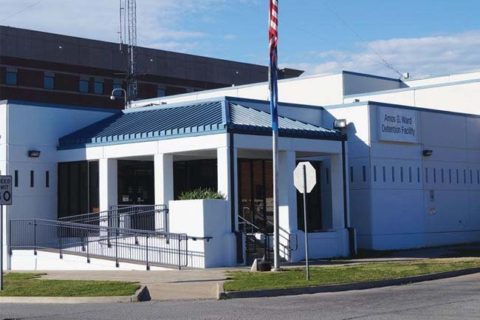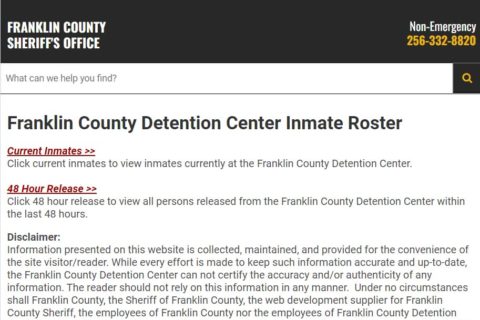To make it easier for inmates to buy their needs in prison, such as foods, clothes, toiletries, and even stationery supplies, the commissary account plays an important role here. The inmates’ commissary account can be funded by their family and friends.
Today, there are a number of third-party companies that provide commissary deposit services, so anyone who wants to add funds to their incarcerated loved one can do it easily—Commissary Deposit is one of them. If you’re interested in using this service, here’s everything you need to know about it!
How Does the Commissary Deposit Work?
As the third-party that offers a fast and secure way to deposit money into an inmate’s account, Commissary Deposit works under Cashless Systems, Inc., as its processor. Sure, all forms of services will comply with the policy of Cashless. Any non-compliance with this policy will result in technical malfunctions and service inactivity.

Through Commissary Deposit, it’s a great solution that offers a complete commissary management system, including inmate commissary account management, inmate self-service kiosks, accounts receivable, GAAP accounting and financial reporting, accounts payable, and inventory management.
Established in 1992 in North Carolina, Cashless Systems, Inc., has proven its enormous services in the correctional industry over the past 30 years. With the use of a third-party processor, they basically offer commissary services via in-house operations or via a private commissary service vendor.
When working with Cashless and Commissary Deposit, it means that the users allow them to validate their identity. They may ask for further information from the users, requiring the information of the users’ birthdate, and/or other information that will allow them to reasonably identify their users, as well as ask the users to take steps in verifying the information against a third-party database or via other sources.
Importantly! Both Cashless and Commissary Deposit reserve the right to close, limit, or suspend access to their systems and users’ ability to make payments when they’re unable to get or verify the information.
How to Deposit Money on Inmate’s Commissary Account on Commissary Deposit?
Commissary order service actually allows you to make direct purchases of available goods and services at a facility where an inmate is housed. You can do so directly on the official website of Commissary Deposit.
To deposit money on an inmate’s commissary account on Commissary Deposit, you need to provide accurate information regarding the inmate who will receive your order, what state and facility the inmate is housed in, and the ID number or name of the inmate.
It’s important to note that Cashless is not responsible for an incorrect order of an inmate or facility or for the goods or services you purchase. However, Commissary Deposit is not affiliated in any way with the services offered by Cashless.
Here’s how to deposit money in the Commissary Deposit!
- First, go to the Commissary Deposit website at commissarydeposit.com.
- After you’re at the homepage of Commissary Deposit, you will see two options to add funds to an inmate: 1) Make a money deposit; and 2) Order commissary. Select “Deposit Money” to fund an inmate’s commissary account.
- On the following page, you need to complete your order by filling out the following information:
1. Choose the state where an inmate is housed.
2. Choose the facility where an inmate is located.
3. Set the order date.
4. Confirm the delivery date.
5. Enter an inmate’s ID or last name.
6. Choose the correct inmate from the inmate roster.
7. Verify that the inmate you choose is correct.
8. Enter the amount you want to deposit.
9. Verify the total amount of money you want to deposit.
10. Enter your phone number to receive a verification code.
11. Verify your identity.
12. Provide your credit or debit card information.
13. Send a check or make a payment in accordance with the total. - Last, you may need to confirm whether an inmate received the fund or not.
Well, these are the steps to make a deposit on an inmate’s commissary account on the Commissary Deposit website. If you’re not sure of the inmate who will receive your order or the location of the facility where the inmate is located, you may need to contact the Facility of Cashless to confirm it.
How to place an order on Commissary Deposit? If you want to send food, clothes, or toiletries to an inmate without making a deposit, you can also make a commissary order. The instructions to do so are the same as when you make a money deposit. But when you’re at the homepage of Commissary Deposit, you need to choose Order Commissary by clicking the “Place Order” button. Make sure to complete your order by following the on-screen instructions.
The payments can be made online using a MasterCard, Visa, American Express, or Discover branded credit card or debit card, or at a Cashless Kiosk that you can find at a facility using cash or a bank card.
What Fees Will Be Charged to Make a Deposit on Commissary Deposit?
Commissary Deposit will cost you every time you make one. The fees you need to pay will depend on how much money you want to deposit. When making a deposit, the total transaction amount should be equal to the total amount of the deposit you enter, plus a fixed fee, plus a fee equal to 3.00% of your total transaction amount (a variable fee).
Let’s see the table showing the details of fees based on the amount you make!
| Amount | Fixed Fee + Variable Fee |
| $0.00 – $25.00 | $35.25 + 3.0000% |
| $25.01 – $100.00 | $4.50 + 3.000% |
| $100.01 – $200.00 | $6.00 + 3.0000% |
| $200.01 and up | $7.50 + 3.0000% |
From the table, we can see that the variable fee is calculated by dividing the sum of the deposit amount and the fixed fee by.97. Then, it subtracts from this number the sum of the deposit amount and the fixed fee, so the final amount of the variable fee is equal to 3.00% of the total transaction amount.
Here’s the calculation:
Total Transaction Amount – (Deposit Amount + Fixed Fee) = Variable Fee
What If Your Transaction on Commissary Deposit Fails?
If you happen to get failure when making a deposit or any orders, as well as any issues you face when working with Commissary Deposit, you can try to submit a request by emailing them at Support@CommissaryDeposit.com.
In your email, you need to include the facility where an inmate is located, the inmate’s name, and their ID number. If you don’t provide it, your request may not be processed. You shouldn’t send multiple emails to them since it will only make it take longer for them to respond to your email.
You need to know that the requests will only be received within two business days. If you make a request on the weekend or on a holiday, they may respond to it on the first business day following the holiday or weekend. Commissary Deposit representative is available from Monday to Friday from 8:00 a.m. to 4:30 p.m. EST.
In addition, you can also send a letter to Cashless Systems, Inc., at 1041 Davis Drive, Apex, NC 27523.
Can You Refund Your Money After a Transaction?
Unfortunately, not! Cashless does not issue refunds, so you cannot get your money back after making a payment or purchase. In some circumstances, your payment or purchase may not be completed, or the facility may refuse to accept it.
Currently, the correctional facilities have the right to refuse to accept a payment or a purchase. If your payment is incomplete or refused, Commissary Deposit may cancel the payment transaction and then refund your money, less the fee. In addition, Cashless may also cancel your purchase transaction and refund the amount less the fee to you.
Is Commissary Deposit Safe-to-Use?
There is no doubt about trusting the performance of Commissary Deposit as the processor of Cashless Systems Inc., which has been operating for 30 years. Well, it’s such clear evidence that they have earned the public’s trust, including the protection of user data information.
Under Cashless Systems, Inc., Commissary Deposit is committed to keeping and protecting the user’s privacy. When you’re using Commissary Deposit, you’re bound by the terms of the privacy policy and agree to the collection, use, and disclosure of your personal information.
Cashless Systems and Commissary Deposit have high-security ways to protect against the loss, misuse, and changes to information under their control, including credit card information that has been submitted to Cashless Systems. Both websites use secure server software (SSL) that can encrypt all the information you provide. Of course, this system really protects the information you’ve collected from unauthorized access.
Of course, Cashless may collect your personal information when you create an account or use its services through Commissary Deposit. In this case, Cashless will only keep your personal information that you provide, as follows:
- Your first, middle, and last names.
- Your address, including your city, state, and zip code.
- Your email address.
- Your phone number.
- The last 4-digits of your credit or debit card that you use in a transaction.
- The 2-digit month of expiration of your debit or credit card that you use in a transaction.
- The 2-digit year of expiration of your debit or credit card that you use in a transaction.
In addition, that information is limited to your name, transaction ID, authorization code, inmate identification, and amount of your transaction. It’s important for you to know that Cashless Systems does not store your entire debit card or credit card number when you make a transaction.
Keep in mind that there’s no perfect system. Thus, neither Cashless Systems nor Commissary Deposit make any warranties with regard to the security measures. Of course, neither will be responsible for any actual or consequential damages that result from a lapse in complying with this privacy policy due to a security breach or technical malfunction.

A bookworm and researcher especially related to law and citizenship education. I spend time every day in front of the internet and the campus library.




